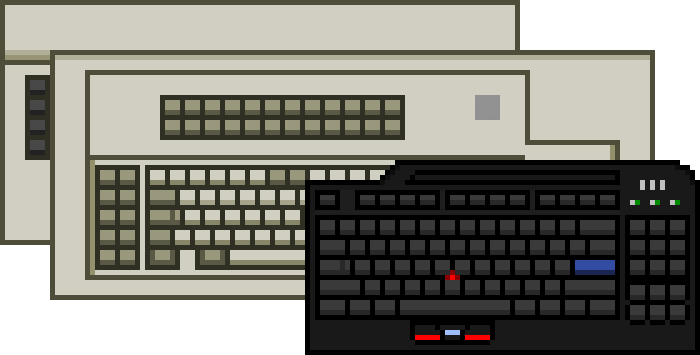P/N 6450225 - Model F Keyboard Details & Specs
Provided by the ASK Keyboard Part Number Database
IBM Personal Computer AT Keyboard
| Type | Model F/AT PC Keyboard |
|---|---|
| Known host systems | IBM 5170 Personal Computer AT (IBM PC family) |
| OEMs or ODMs | IBM |
| Keyswitches | IBM capacitive buckling springs |
| Earliest appearance | |
| Original keycaps | PBT with dye-sublimated legends |
| Cover colour | Pearl White |
| Branding | IBM silver square badge |
| Feet | Single-setting riser feet |
| Protocol | IBM Mode 2 (scancode set 2) |
| Connection | Black coiled-style fixed DIN (180) cable |
| Number of keys | 84 |
| Form factor | Navblockless |
| Layout & language | PC-style: AT U.K. English |
| Sources | Image: Rear label example from 1985-06-05 by IBM United Kingdom |
| Related Directory entries | IBM Personal Computer AT Keyboard (aka "Model F/AT") |
| Data last updated |

